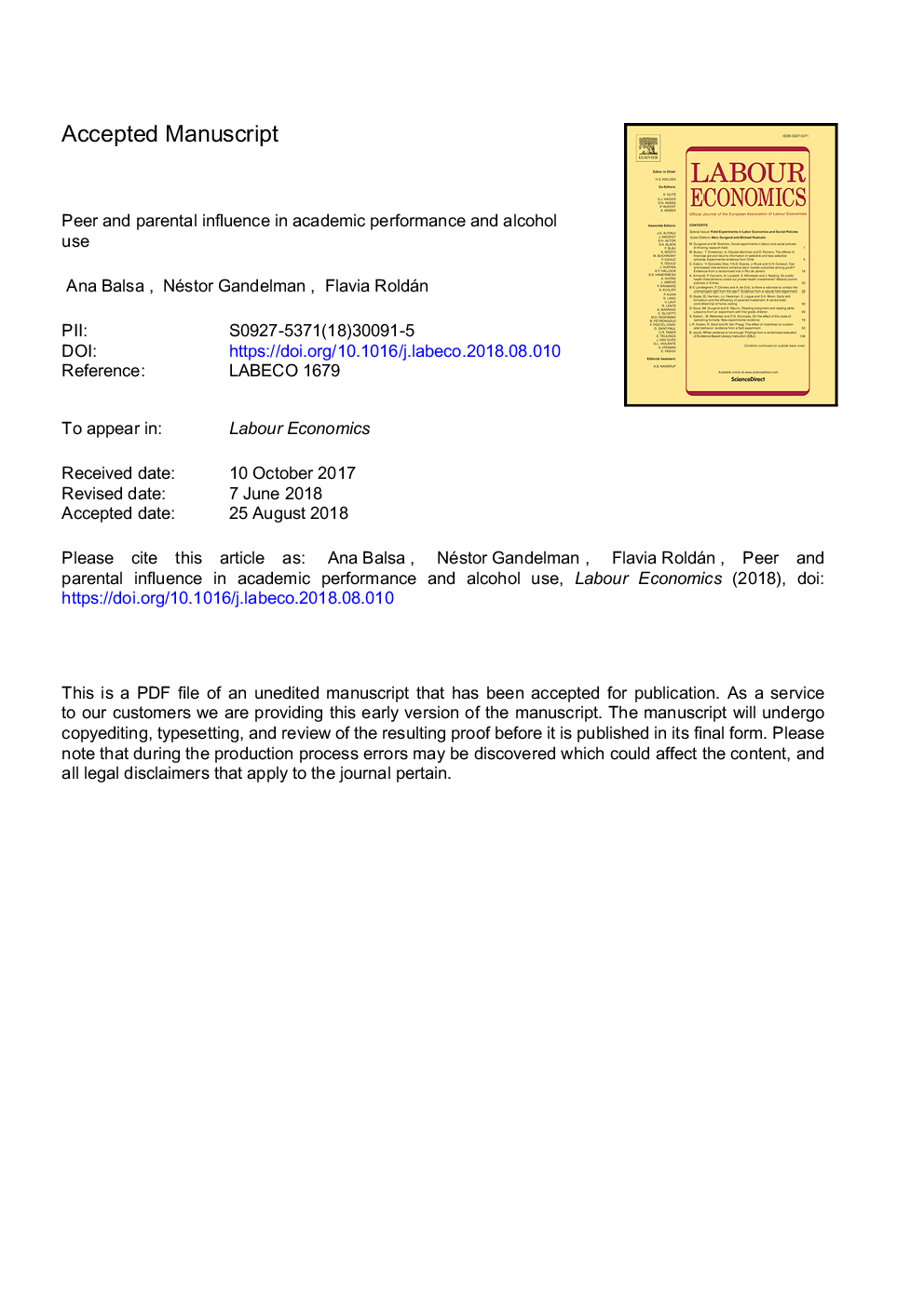| Article ID | Journal | Published Year | Pages | File Type |
|---|---|---|---|---|
| 10153750 | Labour Economics | 2018 | 51 Pages |
Abstract
This paper analyzes the interactions between peers and parents in the development of adolescent's cognitive skills, proxied by the academic performance of adolescents, and the predisposition to risky behavior, proxied by the frecuency of alcohol consumption. We estimate a technology of skill formation that identifies peer effects on the basis of quasi-random assignment of students across classes, time varying data, and the use of instrumental variables. We find that both peer and parental socialization efforts have a positive influence over adolescents' academic skills, and that these effects are complementary: as parents invest more, peers amplify their effects. Our results suggest that peer effects are heterogenous (boys, popular students and high achievers are more likely to be influenced by peers academic abilities). On the other hand, we do not find robuts evidence of peer effects on the frecuency of alcohol consumption. We do find, however, that parental investment decreases alcohol consumption.
Related Topics
Social Sciences and Humanities
Economics, Econometrics and Finance
Economics and Econometrics
Authors
Ana Balsa, Néstor Gandelman, Flavia Roldán,
